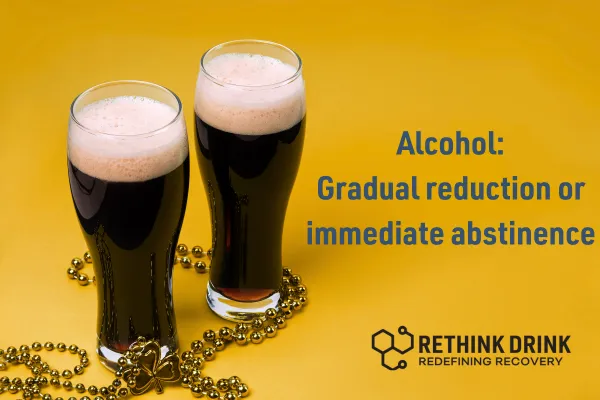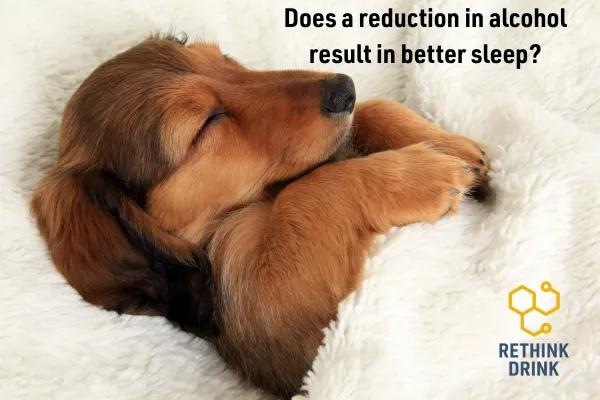Sinclair Method Studies
This article examines the scientific foundation behind TSM, drawing on nearly three decades of peer‑reviewed trials, neuroimaging research, and systematic reviews.

When it comes to changing our relationship with alcohol, many of us are told there's only one way: stop drinking completely, right now. But what if that approach is too harsh—too unforgiving—for where we're at emotionally, psychologically, or even physically?

Sleep and alcohol have long had a complicated relationship. For many, a nightcap might feel like a shortcut to falling asleep—but is that truly restful sleep? At Rethink Drink, we often see a turning point for clients who reduce their alcohol intake and, sometimes to their surprise, begin to sleep better than they have in years. Let’s unpack the science behind why alcohol reduction often leads to improved sleep quality and how you can make sustainable changes for long-term wellness.

The Sinclair Method (TSM) is an evidence-based treatment for alcohol use disorder (AUD) that is transforming lives across the globe. Unlike traditional abstinence-only models, TSM enables individuals to gradually unlearn alcohol dependency using a medication called Naltrexone.

Many people believe that once you develop an addiction to alcohol, you’re trapped for life. However, modern research proves that alcohol addiction is treatable through various scientific and medical interventions. Unlike outdated abstinence-only models, new approaches focus on retraining the brain rather than relying solely on willpower.

The National Health Service (NHS) bears a significant portion of the financial burden associated with alcohol misuse. Recent estimates indicate that alcohol-related harm costs the NHS approximately £4.91 billion annually, encompassing expenses related to hospital admissions, ambulance services, and treatments for alcohol dependency.

Endorphins are natural opioids produced by the brain that regulate pain and pleasure. When alcohol is consumed, it triggers the release of these endorphins in brain areas linked to reward, such as the nucleus accumbens and orbitofrontal cortex. This release creates feelings of euphoria and relaxation, reinforcing the urge to drink.
The Sunday Reset
Every Sunday, we share a 2-minute insight into the logic of the Sinclair Method.
Join thousands of others for our weekly newsletter and change how you see the problem,
because when you change the way you look at things, the things you look at change.
… There’s a reason we’re called Rethink Drink!
